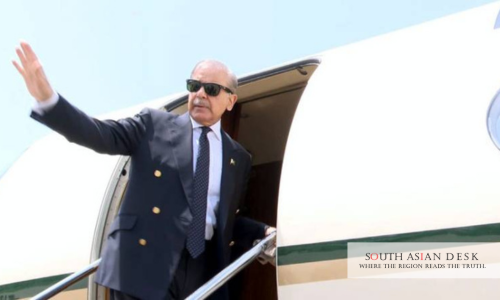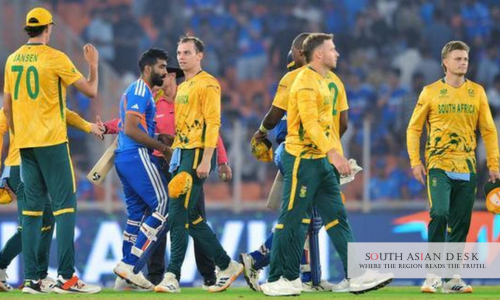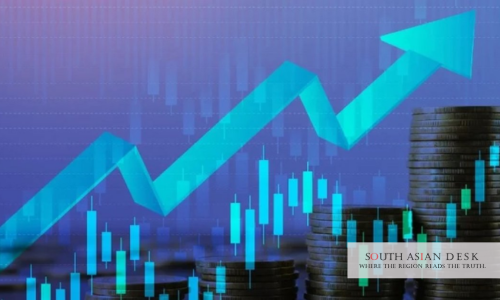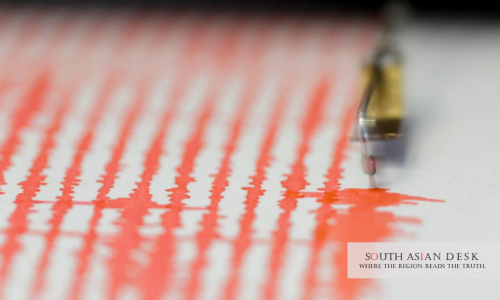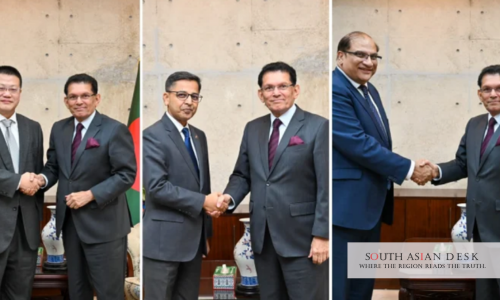Prime Minister Shehbaz Sharif’s participation in a high-level Muslim leaders meeting with Trump raises questions about potential shifts in regional alliances amid escalating global tensions.
Prime Minister Shehbaz Sharif will join a select group of Muslim leaders in a meeting with US President Trump next week in New York to discuss regional and international peace and security issues, the Foreign Office announced on Sunday, 21 September 2025.
Accompanied by Foreign Minister Ishaq Dar and senior officials, Sharif will lead Pakistan’s delegation to the 80th UN General Assembly session starting Monday, 22 September 2025, on the sidelines of which the Muslim Leaders, Meeting is scheduled. This engagement, the first direct interaction between PM Shahbaz and Trump since the latter’s inauguration in January 2025, aims to address prolonged conflicts including those in Kashmir and Palestine, as well as broader threats like terrorism and climate change.
Why It Matters for South Asia
In a region marked by volatile geopolitics, the Muslim Leaders, Meeting underscores Pakistan’s pivotal role in bridging divides between the Islamic world and Western powers, potentially influencing South Asian security dynamics. For nations like Pakistan, India, and Bangladesh, outcomes could reshape counter-terrorism strategies, economic partnerships, and resolutions to longstanding disputes such as Kashmir, fostering stability or exacerbating rivalries depending on the dialogue’s direction.
PM Shahbaz’s UNGA Agenda: A Platform for Diplomacy
PM Shahbaz arrives in New York at a critical juncture, leading a delegation that includes key ministers and officials for the high-level segment of the UN General Assembly. According to the Foreign Office statement, the Prime Minister’s schedule encompasses multiple engagements designed to amplify Pakistan’s voice on global stages. Beyond the Muslim Leaders, Meeting with Trump, Sharif will address the UN Security Council, participate in a high-level session of the Global Development Initiative, and attend a special event on climate action.
The Foreign Office emphasised that these forums provide an opportunity for PM Shahbaz to articulate Pakistan’s stance on pressing issues. The Foreign Office stated:
“The Prime Minister will urge the international community to resolve situations of prolonged occupation and denial of the right to self-determination, particularly in India-occupied Kashmir and Palestine, and will draw attention to the crisis in Gaza.”
This focus aligns with recent regional developments, including an emergency joint session of the Arab League and Organisation of Islamic Cooperation, co-sponsored by Pakistan, calling for a review of ties with Israel following strikes on Hamas officials in Doha.
In bilateral discussions, PM Shahbaz is expected to meet several world leaders and senior UN officials to exchange views on mutual interests. The Foreign Office further noted that the visit will highlight Pakistan’s perspectives on regional security, climate change, terrorism, Islamophobia, and sustainable development.
The Foreign Office added:
“The Prime Minister will underline Pakistan’s resolve to work with UN member states to uphold the UN Charter.”
Such statements reflect Islamabad’s commitment to multilateralism, especially as Pakistan serves on the UN Security Council.
The Muslim Leaders Meeting with Trump: Context and Implications
The centrepiece of the trip, the Muslim Leaders Meeting with Trump, is poised to be a landmark event. Described by the Foreign Office as a forum for select Islamic leaders to engage the US President, it will centre on exchanging views pertinent to peace and security. While specific participants beyond PM Shahbaz remain undisclosed, the gathering’s timing—amid heightened Middle East tensions—suggests discussions on Gaza, broader counter-terrorism efforts, and US-Islamic world relations.
This interaction follows PM Shahbaz’s recent state visit to Saudi Arabia on Wednesday, 17 September 2025, where he and Crown Prince Mohammed bin Salman signed a Strategic Mutual Defence Agreement. The pact treats any aggression against one nation as an attack on both, bolstering Pakistan’s strategic posture in South Asia and the Gulf. Analysts view this as groundwork for the New York engagements, potentially aligning Muslim Leaders on unified positions during the meeting with Trump.
The US side has not issued a parallel confirmation, but prior diplomatic overtures indicate openness. In April 2025, US Secretary of State Marco Rubio held a call with PM Shahbaz to condemn a terror attack in Pahalgam and reaffirm commitments to accountability. Such precedents suggest the Muslim Leaders, Meeting could extend to economic dimensions, including US aid for Pakistan’s flood recovery efforts, where American assistance reached over 300,000 people in 72 hours earlier this year.
Background
Pakistan’s diplomatic calendar in 2025 has been active, with PM Shahbaz navigating a complex landscape. The UNGA visit builds on earlier efforts, such as the Shanghai Cooperation Organisation summit in July 2023—though dated, it echoes ongoing themes of connectivity and anti-terrorism that Sharif championed. Domestically, PM Shahbaz’s leadership has focused on economic stabilisation, with recent US-Pakistan dialogues emphasising de-escalation in South Asia, including calls for dialogue with India.
The resurgence of Trump in US politics has recalibrated alliances. His administration’s “America First” approach prioritises targeted foreign assistance, as seen in rapid responses to Pakistan’s crises, while pushing for hemispheric security against terrorism. The Muslim Leaders, Meeting fits this framework, potentially exploring joint deterrence akin to the Saudi-Pakistan pact.
What’s Next for Regional Engagement
As the Muslim Leaders, Meeting unfolds, observers anticipate follow-up mechanisms, possibly including trilateral talks involving Qatar and Saudi Arabia, to sustain momentum on Gaza and Kashmir. PM Shahbaz’s return to Islamabad post-UNGA could herald announcements on enhanced US-Pakistan cooperation, setting the stage for deeper ties.
In conclusion, the Muslim Leaders, Meeting represents a vital opportunity for PM Shahbaz to advance South Asian priorities on the world stage, reinforcing Pakistan’s role in global peace efforts.
Published in SouthAsianDesk, September 21st, 2025
Follow SouthAsianDesk on X, Instagram, and Facebook for insights on business and current affairs from across South Asia.


